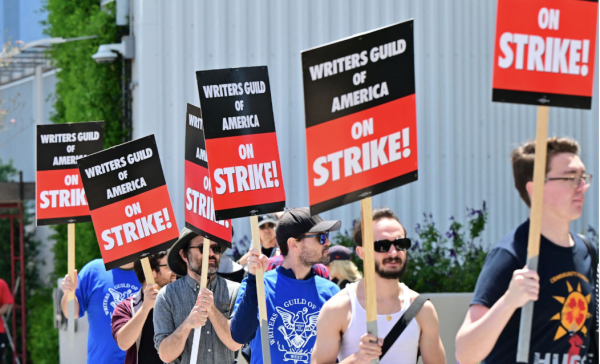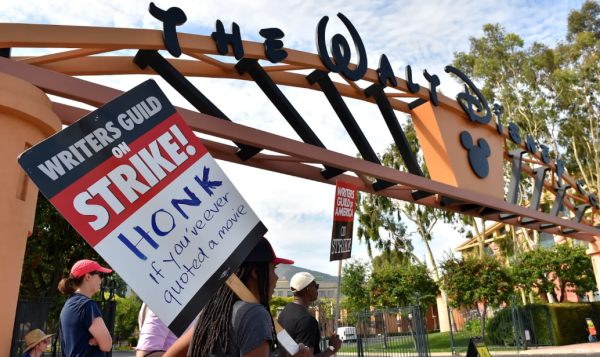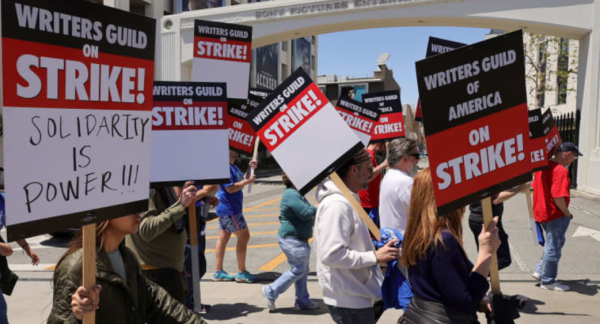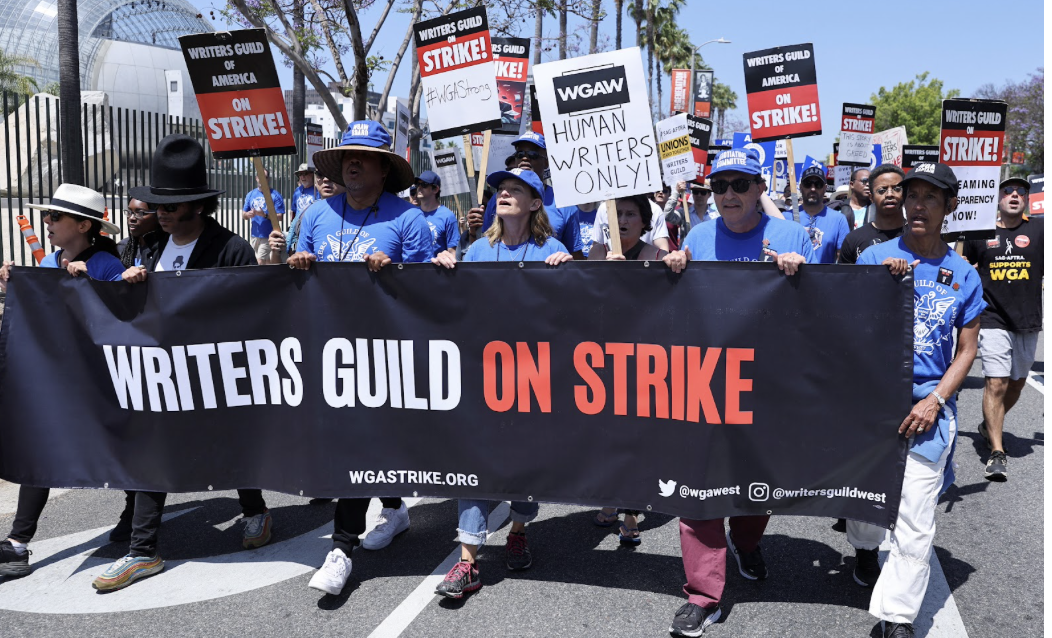On May 2 hundreds of members of the Writer’s Guild of America (WGA) went on strike across the country in protest of unfair labor practices in the entertainment industry. The Writers’ strike lasted 148 days, the longest strike in the Guild’s history since its 154-day strike in 1988. The Screen Actors’ Guild (SAG-AFTRA) soon followed suit, beginning their strike on July 14th. These strikes were the culmination of ongoing labor disputes between the unions and the Alliance of Motion Picture and Television Producers (AMPTP), with workers and entertainment companies unable to agree on industry standards.
A big concern for both Guilds is the use of artificial intelligence in TV and film production. With advancements in A.I. writing software, many writers are concerned that A.I. will be used to replace them in the future, despite producers’ claims of using human and A.I. writers together.
Another big demand is for adjustments in how workers are paid in order to keep up with one of the new forms of content consumption: streaming. Thanks to the rise in streaming services and shorter show seasons, writers’ residual payments have decreased significantly, and both actors and writers have been facing shorter employment periods. Additionally, the use of writer “mini-rooms,” a practice where fewer writers are employed to write for a show, has increased job insecurity for writers.

While these comments were seemingly made to arouse fear in the WGA, they instead reignited the union’s sense of community as members worked to keep each other financially afloat. Famous writers and actors such as Steven Speilberg, Dwayne Johnson, Nicole Kitman, and many more each made multi-million dollar donations to either the WGA or SAG-AFTRA relief funds.
Only a day later, Bob Iger, the CEO of Disney, added fuel to the fire by calling the WGA’s asks “disruptive” and saying their “level of expectation … is just not realistic.”
This not only gave way to anger that executives found writers’ desire for livable wages unrealistic, but made the CEO appear out of touch with reality himself. In fact, SAG-AFTRA greenlit filming for 39 independent projects during the strike because they complied with the union’s new terms, demonstrating that cost is not what prevented large studios from offering a more fair deal.

On Thursday, September 21, top executives from major studios joined negotiations with the WGA for the first time. After four days of marathon negotiations, the WGA and AMPTP reached a tentative agreement. This deal was ratified by WGA members on Wednesday, September 27, and the nearly five-month-long strike was over.
WGA leaders have repeatedly referred to the final agreement as “exceptional,” and writers achieved gains in every category they made proposals in, even if many were compromises. The WGA won higher pay—including increased residuals—as well as minimums regarding employment duration and number of writers per show. The AMPTP initially refused to negotiate on either point, citing incompatibility with “the creative nature of our industry,” but ultimately were able to compromise.
Producers were also hesitant to negotiate on the use of artificial intelligence in writing, saying that too much remains unknown about the technology. However, the AMPTP conceded to the writers’ demands. According to the final contract, A.I.-written content cannot be considered “literary material,” and writers cannot be forced to use A.I.
Many guild members have decided not to return to work until the SAG-AFTRA strike is resolved, echoing the solidarity of actors when the writers’ own strike began. Still, WGA members have expressed excitement, gratitude, and relief for the advancements made through this contract.


